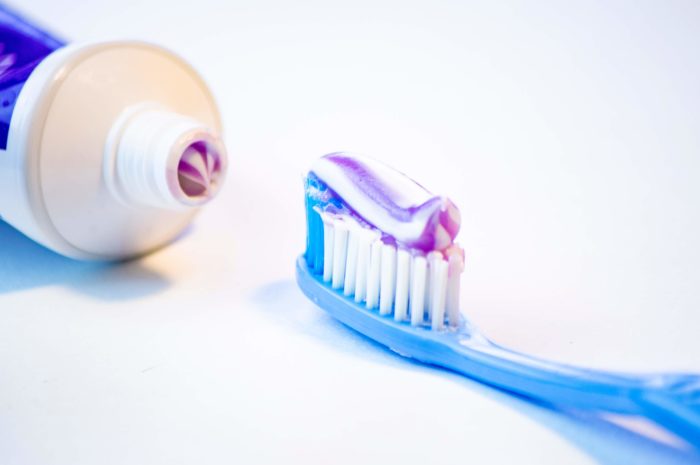Let’s Talk Toothpaste

Let’s Talk Toothpaste
You already know all the basics of taking care of your teeth—regular brushing and flossing, etc. But do you know if you’re using the right toothpaste?
What to look for
Look for a toothpaste with a fluoride level at least 1,000 parts per million and the ADA stamp of approval.
Different toothpastes for different needs
Not all toothpastes are the same, just like not all mouths are the same. People with common oral issues, like discoloration and sensitivity, may benefit from specially formulated products. Here are some of the types of toothpastes that are readily available today.
Whitening toothpaste
Tooth enamel is porous, so exposure to certain foods or beverages, such as coffee, cola, dark fruits and juices, and red wine can cause teeth to become stained over time. Tartar buildup can also cause teeth to appear yellowish, as can smoking tobacco products. There are many treatments available to bring teeth back or close to their originally brilliance, with whitening toothpastes among the most common.
There are several different types of whitening toothpastes, and they work in different ways. Some products contain very mild abrasive which can polish away stains and tartar.
Some whitening toothpastes contain an additive called potassium nitrate, also found in toothpastes for sensitive teeth. It works by strengthening weakened tooth enamel and removing surface stains.
Still other products use blue covarine, a chemical that coats the surface of teeth to counteract the yellow color of tartar or stains. These whitening toothpastes can show results nearly immediately, which others can take two to six weeks before you see a difference.
Sensitive teeth
People who have sensitive teeth that are sensitive to hot or cold substances can find brushing to be painful as well. There are special toothpastes that can help alleviate these sensitivities. Over-the-counter toothpastes take care of the issue for most patients, but extreme cases may need a prescription or in-office treatment.
Toothpastes made for people with sensitive teeth are made with potassium nitrate, which can help to reduce tooth pain. This naturally occurring desensitizing agent is perfectly saft for human consumption—in fact, it is commonly found in green vegetables like celery, spinach, and cabbage. As an additive to toothpaste, it is approved by the FDA. Potassium nitrate is also used in whitening toothpaste.
Other toothpastes for sensitive teeth contain stannous fluoride instead of potassium nitrate. This additive works by attacking plaque and bacteria at the gum line, where tooth pain from sensitivity often starts.
Tartar Control
Tartar is the result of plaque that is not removed and hardens on the surface of teeth, especially along the gum line. Tartar can make your teeth appear yellow, but more importantly, it can also cause gum disease if left untreated for too long. When you visit the dentist for your regular cleaning, any tartar that has built up on your teeth is professionally removed, which is part of the reason why they feel so smooth when you leave. In between cleanings, you can help remove or prevent buildup by using a toothpaste that is specially formulated to control tartar.
Tartar control toothpastes contain special formulas, like zinc ions and pyrophosphates, that prevent plaque from becoming calcified and turning into tartar. Gentle abrasives in these products also help to remove plaque during regular brushing, before it can harden into problem-causing tartar. Fluoride also helps control tartar by helping build up and strengthen your natural tooth enamel.
Children’s toothpaste
For young children whose teeth are still forming and who are still learning about oral care, specially formulated toothpastes can get them started with healthy oral habits.
Toothpastes for younger brushers usually contain less fluoride. These products are still very effective; they just keep kids from swallowing too much of the additive. (Excess fluoride can lead to tooth discoloration.)
Kids’ toothpastes are less abrasive than those for adults, which, combined with softer toothbrushes, can make toothbrushing more comfortable for young gums and teeth. And many children’s toothpastes come in fun, fruity flavors, which are more suited to kids’ palates than the stronger mint flavors in many adult products.
See what your dentist says
Check in with your dentist if you have specific concerns or questions about whether you’re using the right toothpaste. It’s an easy assessment and an easy fix, if necessary! The professionals at Smiles for Centreville are always happy to talk to you about any problems or concern you may have. Call us at 703-830-9110 or make an appointment today using this link !
